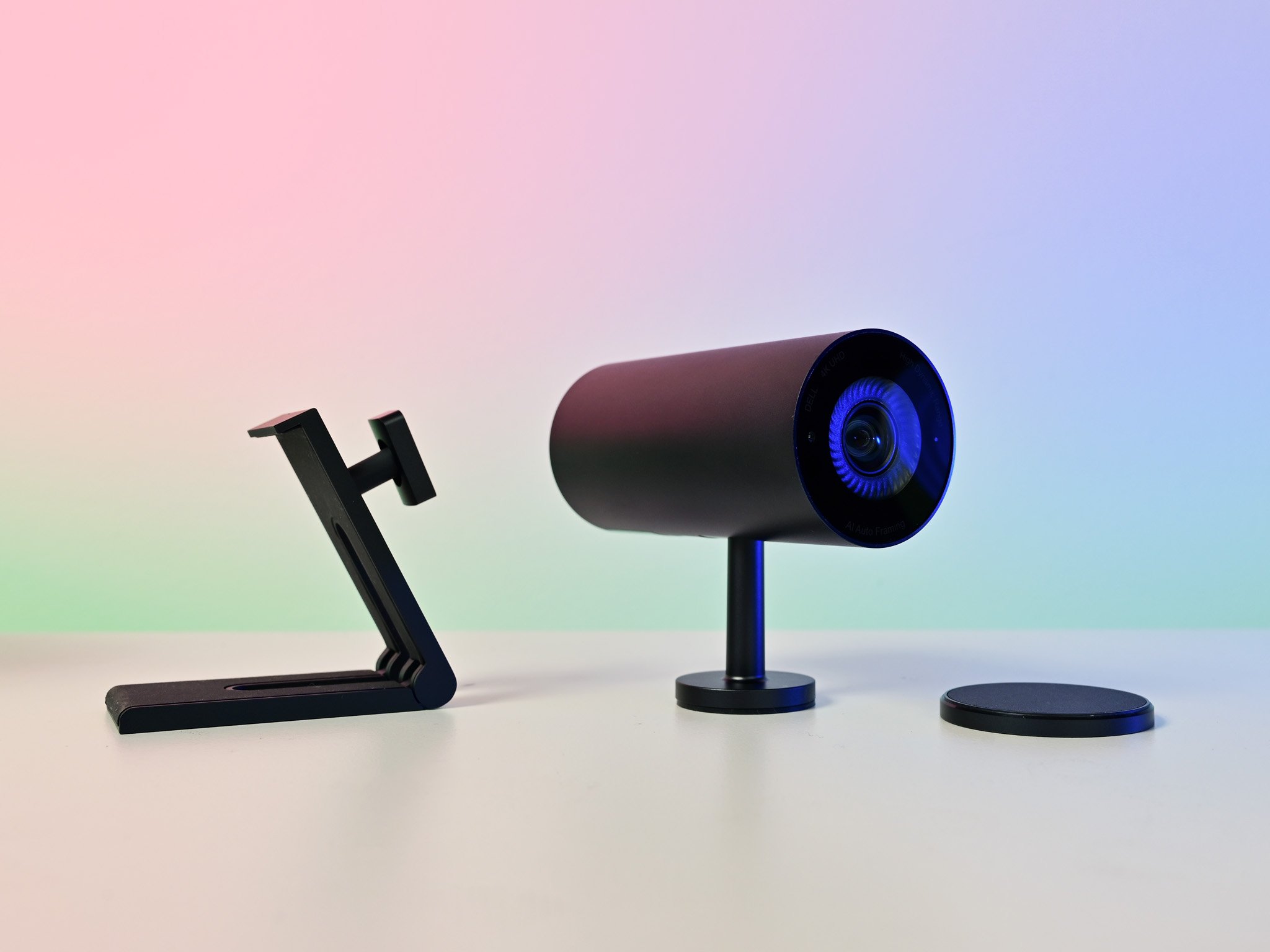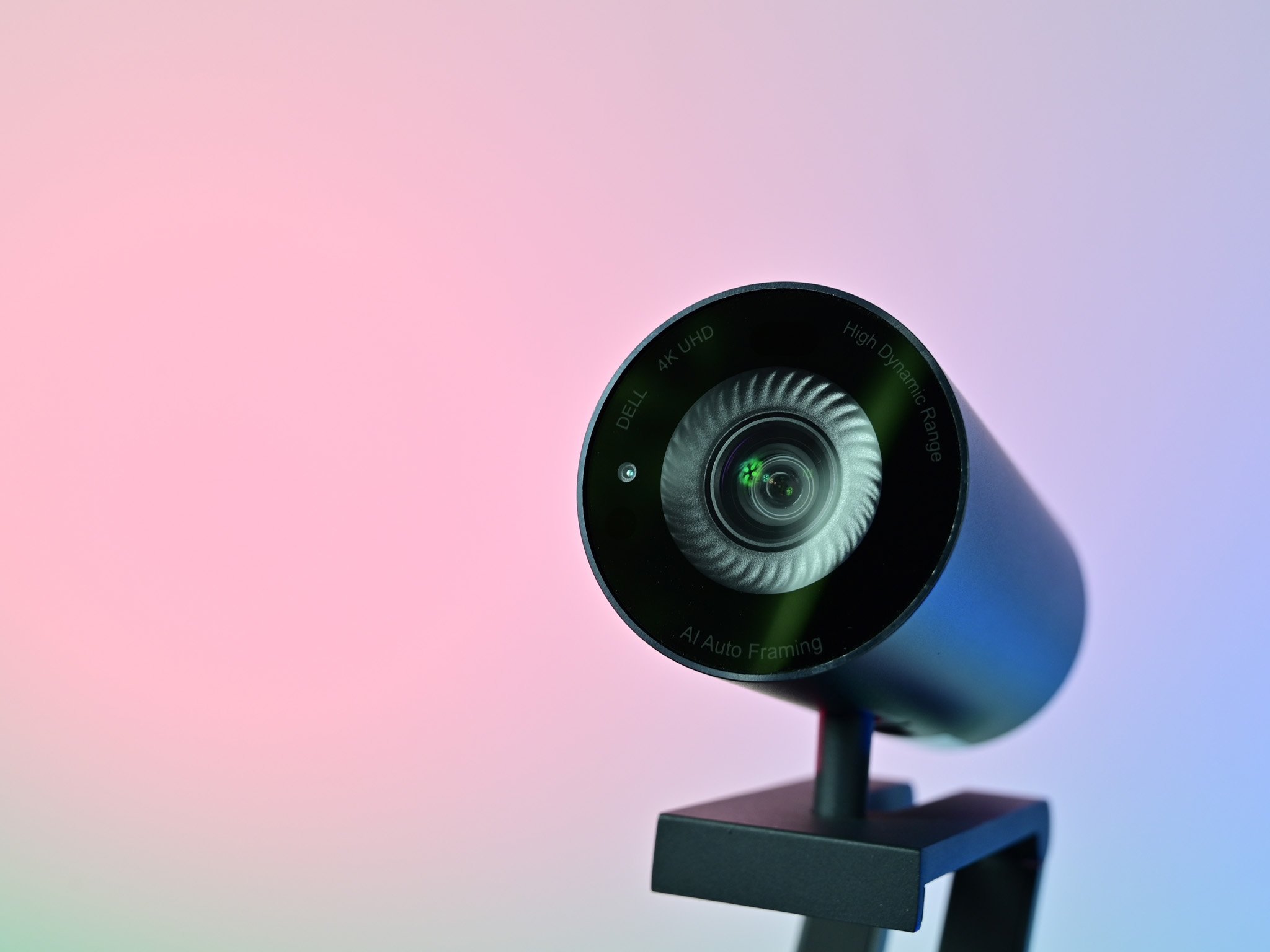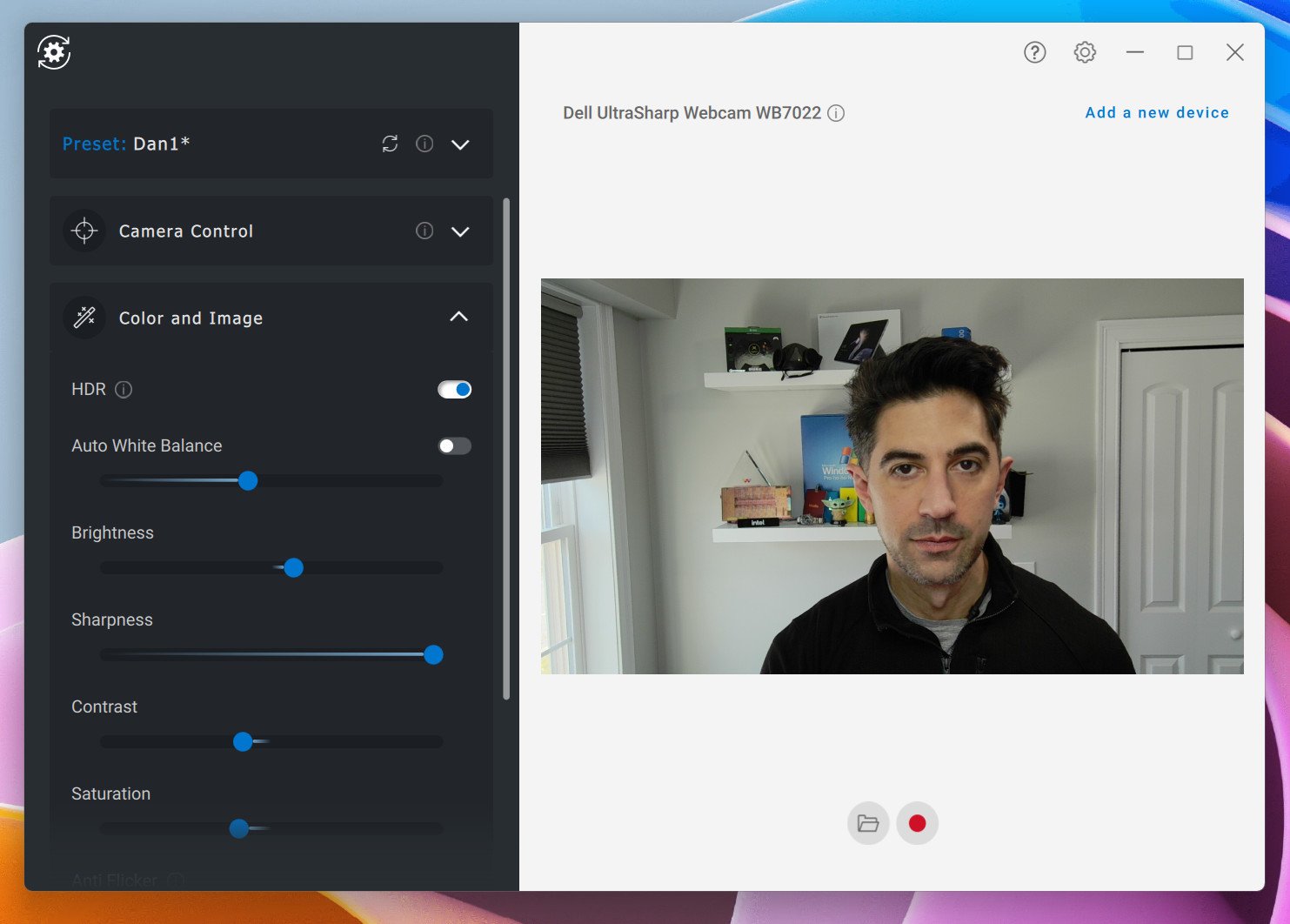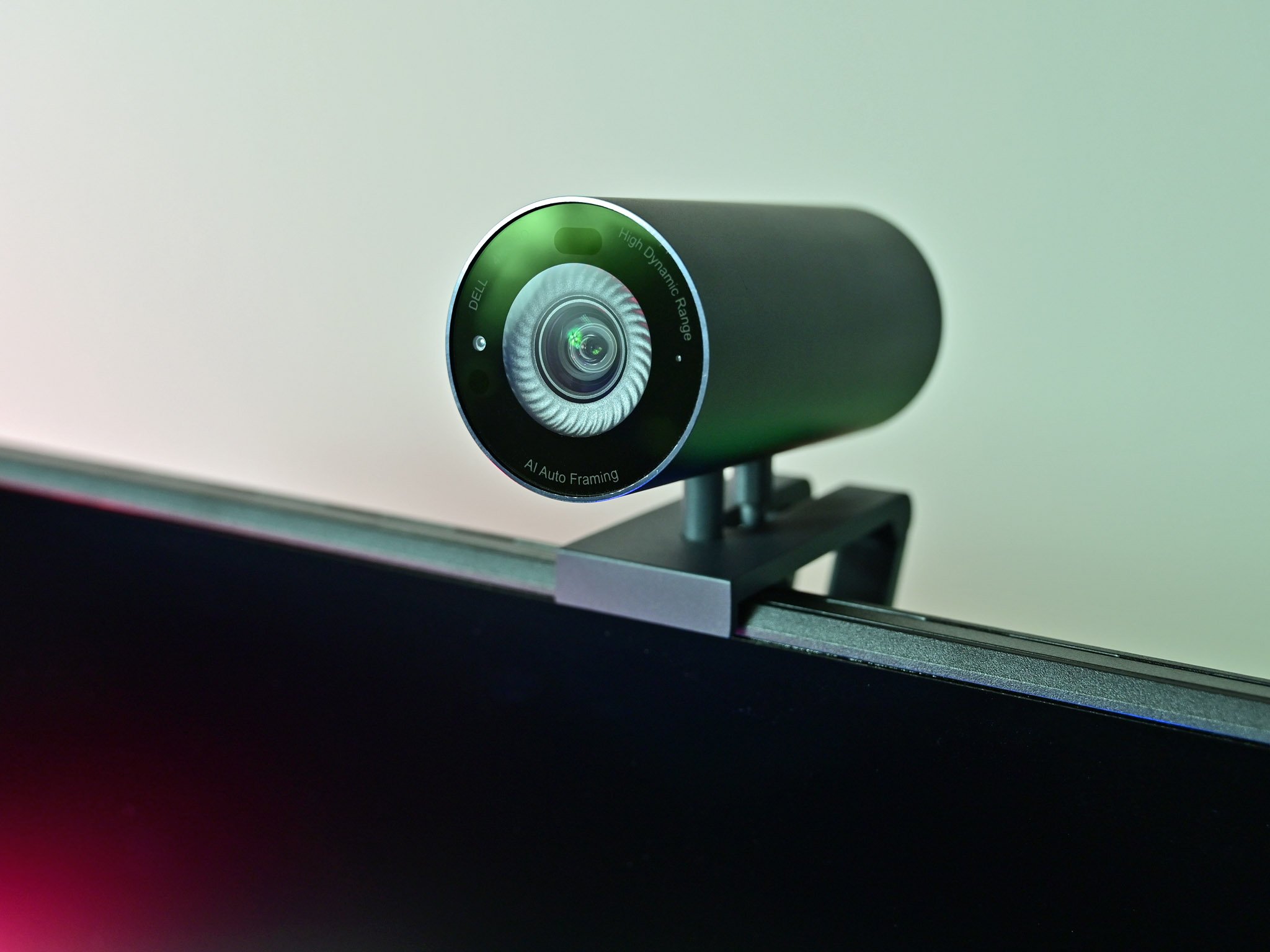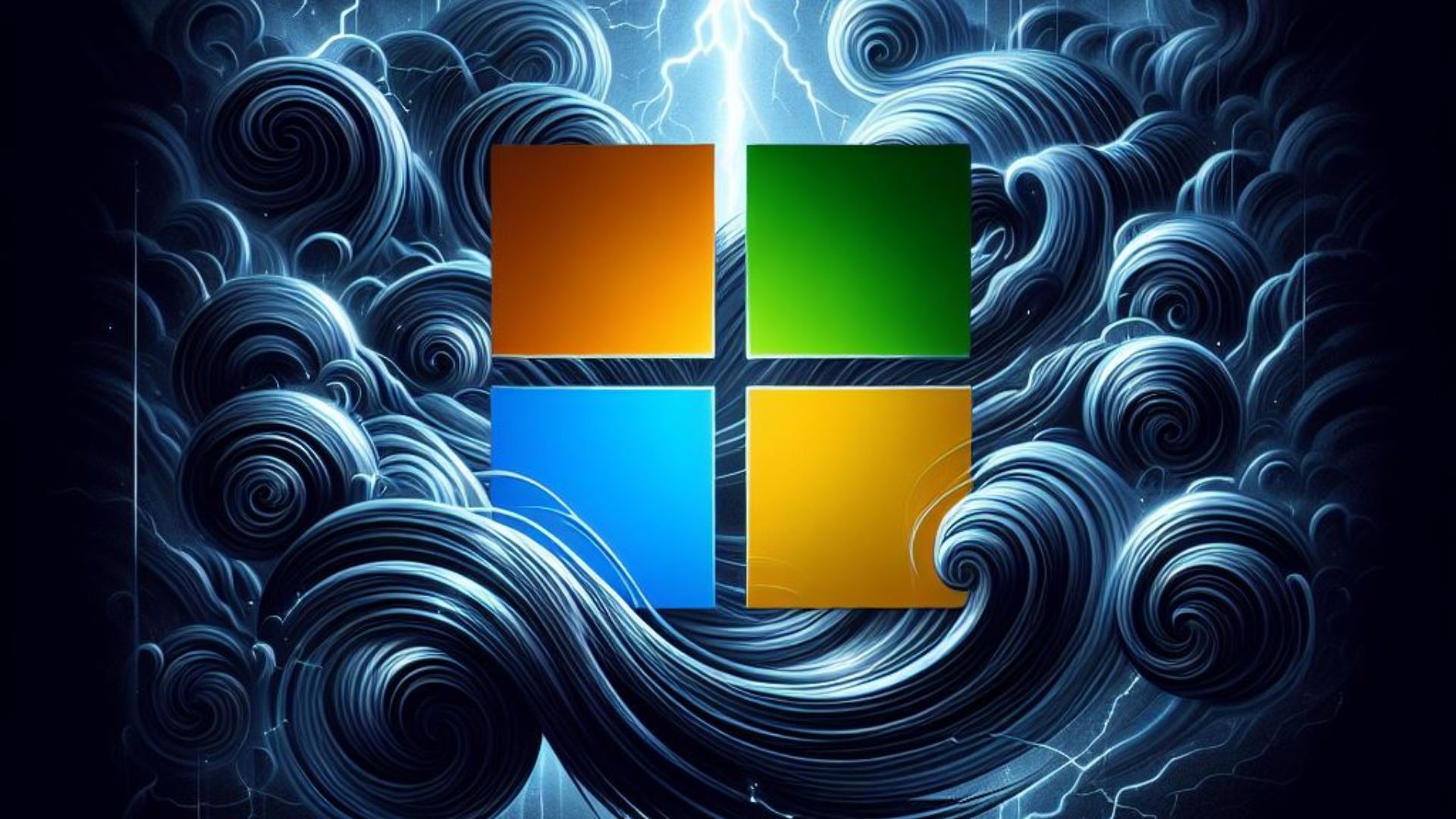While webcams have become very important to how we now work, it's rather remarkable that Logitech — who released the BRIO 4K back in 2017 — is still the top offering. That's not to say other companies aren't gunning for the king. Dell's new UltraSharp Webcam certainly has many of the right features (on paper), but is it absolutely better?
I've been using Dell's big new camera for a few months now, and while the UltraSharp advances the category in some meaningful ways, Dell still has room to grow in the image processing department.
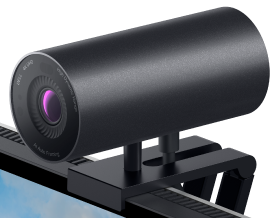
Bottom line: Dell's UltraSharp Webcam brings excellent, quality hardware to the increasingly competitive pro webcam market. But while the hardware is fantastic and the software is easy to use, it's still not better than the (now) cheaper Logitech BRIO 4K.
Pros
- Outstanding design
- Windows Hello and presence detection
- Easy-to-use software
- 4K/30 video, 8MP sensor
Cons
- Color science is not as good as Logitech's
- Presence detection unlikely to work on desktop PCs
- No horizontal tilt
- Slow auto-focus, dark image, not so sharp
Dell UltraSharp Webcam: Price and availability
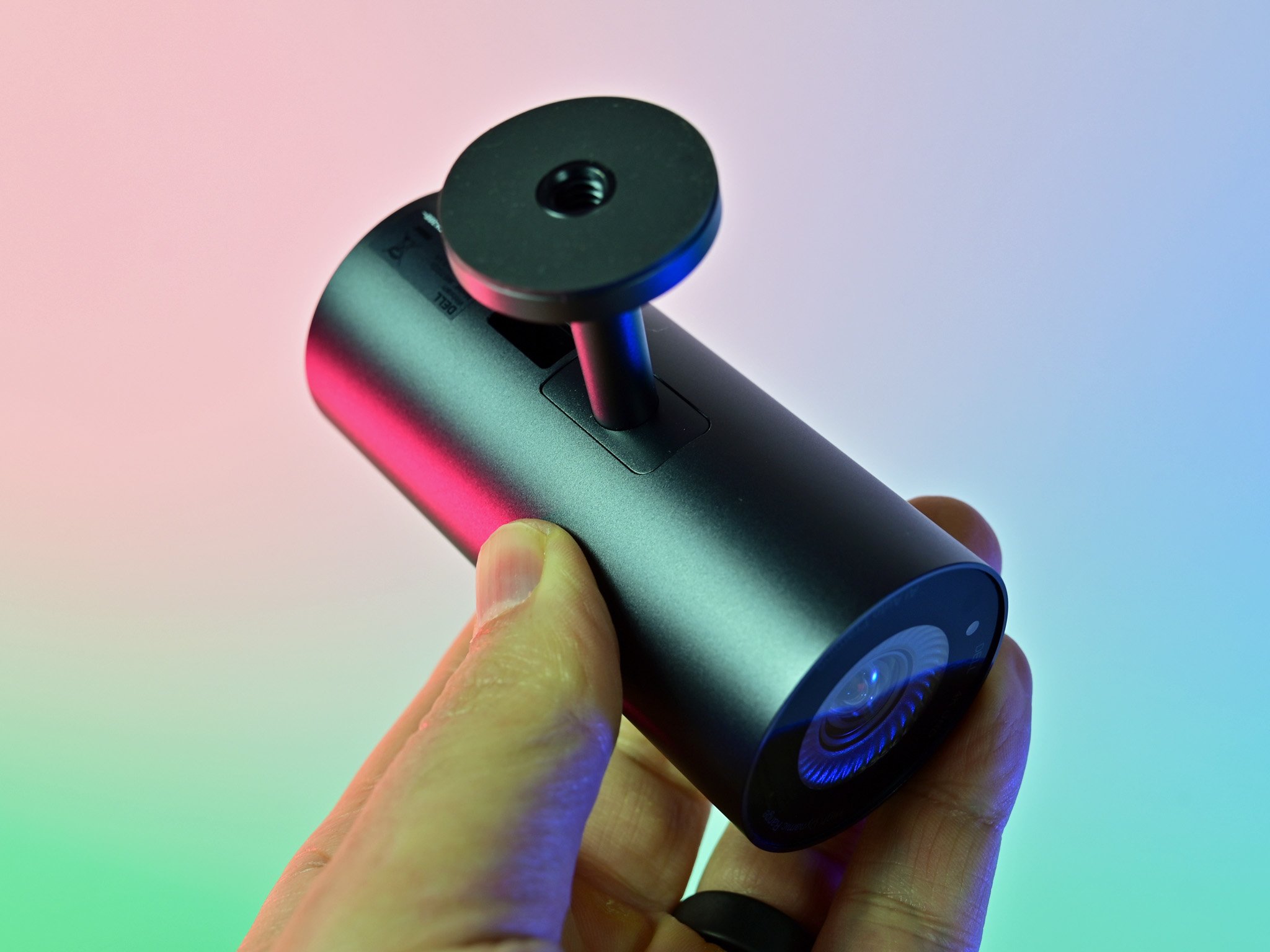
The Dell UltraSharp Webcam is available through Amazon and Dell directly for $200. There are no options or differing configurations.
Dell UltraSharp Webcam: What you'll like
There's no doubt that Dell is really trying with the UltraSharp. Dell nailed the looks, feel, quality, and specs list if you could design the perfect webcam.
Out of the box, you get a solid, hefty, tube-like camera. It's all machined anodized aluminum and eschews the plastics like in Logitech's cameras. The magnets are strong, won't shake loose, and are machined with precision. Included are two mounts — one for your PC display and one for a tabletop that doubles a tripod mount. The mounts are purely magnetic, which is excellent. Just pull away and swap out with no tools or screws.
Connectivity is achieved through a Type-C to Type-A cable (the Type-C is for the camera; Type-A for the PC) that measures around 7 feet in length, more than enough for most setups. It's rubber, thick, and feels capable.
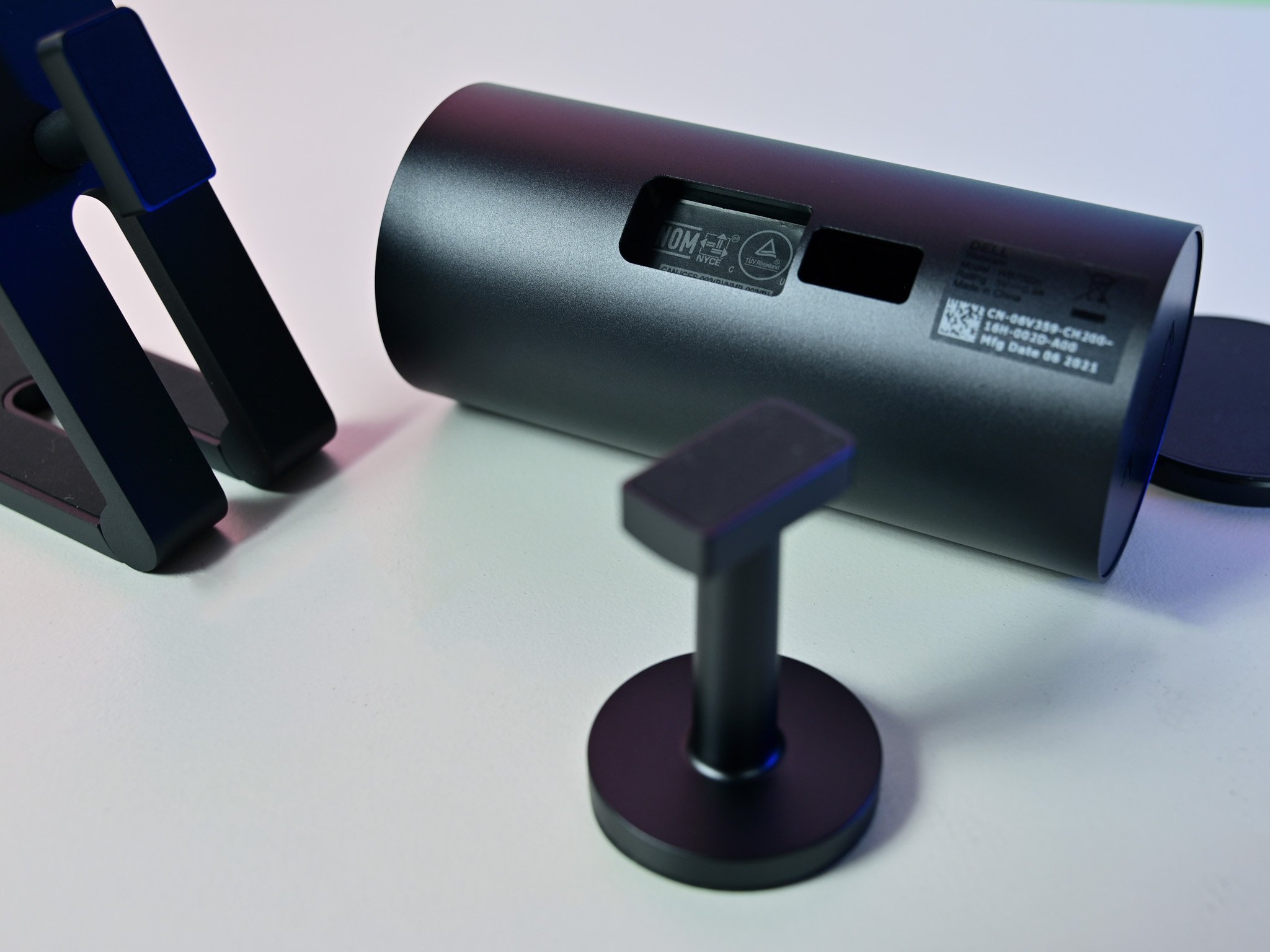
Dell makes use of magnets again as the included privacy lid simply sticks to the front glass, ensuring the camera cannot record anything. In a clever move, when not in use, Dell lets you slap it to the rear of the camera (also using magnets) so that you don't misplace it.
All the latest news, reviews, and guides for Windows and Xbox diehards.
| Category | Dell UltraSharp Webcam (WB7022) |
|---|---|
| Resolution | 4K UHD / 24, 30 Full HD / 24, 30, 60 HD / 24, 30, 60 |
| Megapixel | 8.3MP |
| Sensor brand | Large Sony STARVIS CMOS |
| FOV | 65, 78, 90 degrees |
| HD Digital Zoom | Up to 5x |
| Auto-light correction | Advanced Digital Overlap (DOL) HDR Video Noise Reduction (3D+2D) |
| Auto white balance | Yes |
| AI Auto-Framing | Yes |
| Microphone | No |
| Privacy | Windows Hello Dell ExpressSign-in |
| Certification | Microsoft Teams, Zoom |
| Size | 42mm x 90mm 1.65 x 3.54 inches |
| Material | Anodized aluminum |
| Connectivity | USB-A USB-C to USB-A (inbox) |
Turning to the main point, the camera, and on paper, Dell again hits the right notes. A massive 8.3MP camera, Windows Hello, HDR, Sony sensor, 4K-capable — it's all great. Windows Hello works without a hitch, and Dell's ExpressSign-In (aka presence detection) works well to automatically turn on your PC and log you in without touching a thing. Likewise, it can auto-lock your PC when you walk away.
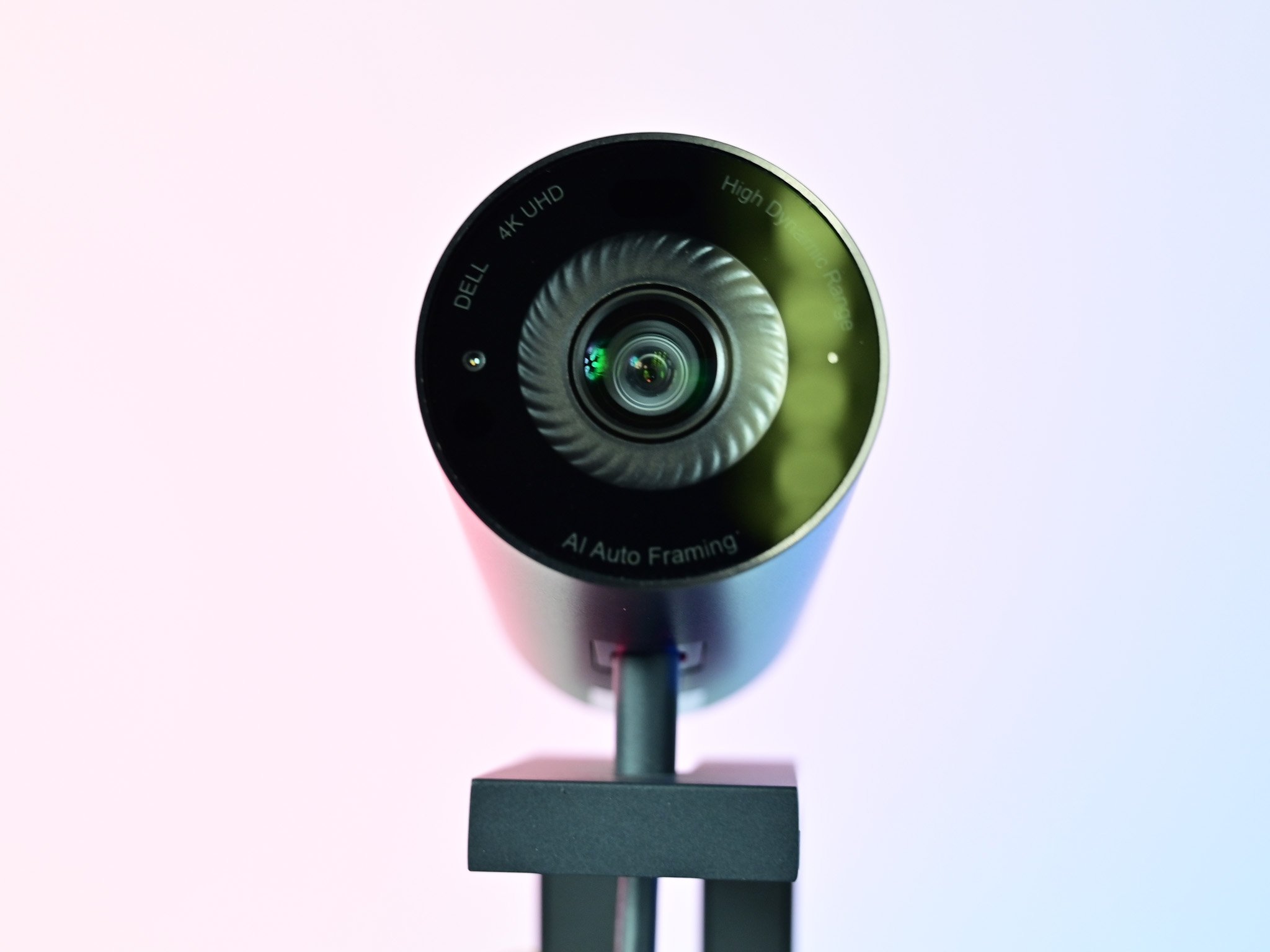
The software (Dell Peripheral Manager) is automatically installed when you plug the camera into your PC. No need to search out an app on the web. Dell Peripheral Manager is simple to use and walks you through the initial setup. From there, you can use the default setting or use some presets like smooth, vibrant, or warm. Of course, there is also custom where you can create your own profiles where you configure the field of view (65, 78, or 90 degrees), focus, zoom, HDR, white balance, sharpness, contrast, and more.
Under Camera Control is AI Auto Framing, which is a real selling point. When enabled, it overrides the field of view preset, and it follows your face/body. It's an excellent option for those who fidget on camera or move around slightly during calls, as it means you'll always be centered. The action is smooth and looks purposeful, too.
Dell UltraSharp Webcam: What you won't like
This camera does not have a built-in microphone. That's odd, but Dell makes a good point that most people who need a more "pro-level" webcam will also bring a higher quality microphone. It also makes for less confusion in Windows as to what is your default mic. Nonetheless, if you don't have an external mic (on your desktop) or your laptop's mics are poor, you'll have to spend some extra cash to solve that.
While the Dell UltraSharp tilts nicely up and down, it does not move side to side. It's not a deal-breaker, but a pivoting mechanism would have been beneficial.
The default image settings for the Dell UltraSharp Webcam are not to my liking. The white balance seems slightly off, my skin looks redder than in real life, images are too soft, and the overall picture seems darker than other webcams. It's not terrible, and some may prefer the look, but the out-of-the-box regular settings don't seem ideal.
The good news is you can create your own profile and "dial-in" sharpness, brightness, white balance, and more to suit your needs. After doing so, my thoughts on image quality improved. But this is where Logitech still has an advantage, as the BRIO 4K just works without any user tweaking. Also, I was never able to tweak Dell's camera to match the look of Logitech's.
Human presence detection, aka Dell ExpressSign-in, is unlikely to work on many desktop PCs, which is disappointing. Dell notes on its website that "Walk Away Lock and Wake on Approach does not work" on computers that support an S3 sleep state. That's most desktop PCs, as laptops use the S0 sleep state (Modern Standby) instead. I'm a massive fan of this feature on laptops and was excited to have it on my cutting-edge Intel 12th Gen system, but the feature won't even show up in the app (also confusing). But if you plan to use this camera on your laptop, ExpressSign-in worked as advertised, and it is an excellent security option.
While I like the idea of the magnetic privacy lid, at least on my desktop setup, I often just laid it on the desk when not in use, as reaching to place it behind the camera is quite a stretch. Logitech has an optional $9 privacy lid that just opens and closes and is much easier to use.
Dell UltraSharp Webcam: Competition
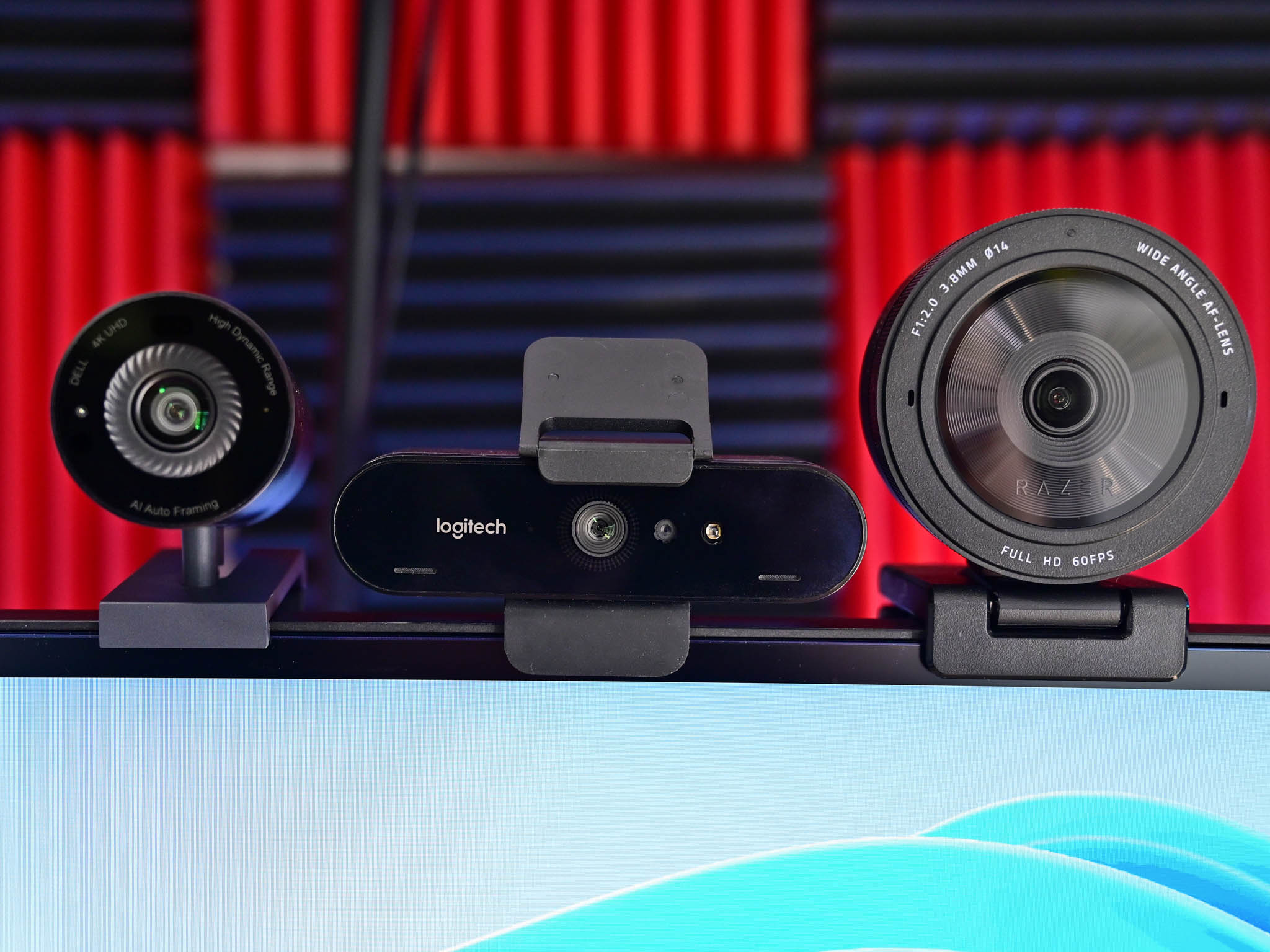
The most apparent alternative to this Dell webcam is the Logitech BRIO 4K, which is now priced around $150. Despite it being nearly four years old, it's still one of the best options out there. It lacks the excellent build quality, mounting options, and Dell's nifty ExpressSign-in feature, but the image quality (without tweaking) is still at the top with an overall sharper, brighter picture.
Razer also has its Kiyo Pro, which is ginormous and boasts excellent low-light abilities. In my experience, it's an OK webcam that's size doesn't match the promises, but it is sharp. It, too, costs $200. It is the worst out of all three.
You can see more options in our best webcam guide.
Dell UltraSharp Webcam: Should you buy it?

You should buy this if ...
- You want a flexible 4K webcam for everyday use
- You want a better webcam for your laptop
- You want Dell ExpressSign-in for security
You shouldn't buy this if ...
- You want the best 4K webcam
Going into this, I had high hopes as Dell gets a lot right with the UltraSharp Webcam. But as the saying goes, when you come at the king, you best not miss. Dell misses compared to the Logitech BRIO 4K, which is astonishing considering that the camera is four years old. It's not that the hardware is at fault, as I'd rate Dell's design and quality as better than the BRIO, but the software and color science are just not as good as Logitech's, who has much more experience in this field.
It is a bit ironic that despite its name being UltraSharp, I don't find this webcam to be that sharp at all. Indeed, it often seems soft to me while keeping the text in the background focused.
In theory, those criticisms mean that Dell could push updates to the UltraSharp Webcam (both in software and firmware) to address the soft-focus, white balance, and brighten up scenes. But you should never buy a product based on what could be instead of what it is (and there are no signs of any substantial Dell updates in the pipeline).
Dell's camera exacerbates these issues being around $50 more than Logitech's. That makes recommending it over the BRIO very difficult.
None of this is to say this UltraSharp is bad. Indeed, I'll easily contend it is easily the second-best webcam on the market right now, and it does have some strong points, including ease of mounting. But Dell needs a bit more practice to get the software tuning down before it topples Logitech.

Daniel Rubino is the Editor-in-Chief of Windows Central. He is also the head reviewer, podcast co-host, and lead analyst. He has been covering Microsoft since 2007, when this site was called WMExperts (and later Windows Phone Central). His interests include Windows, laptops, next-gen computing, and wearable tech. He has reviewed laptops for over 10 years and is particularly fond of Qualcomm processors, new form factors, and thin-and-light PCs. Before all this tech stuff, he worked on a Ph.D. in linguistics studying brain and syntax, performed polysomnographs in NYC, and was a motion-picture operator for 17 years.
